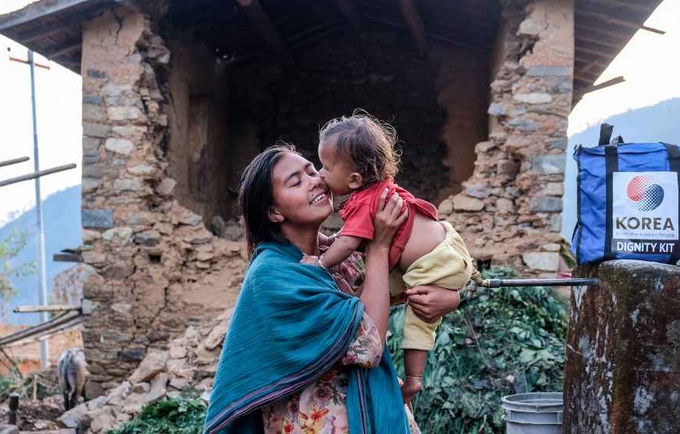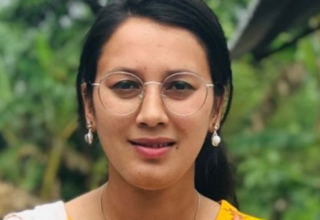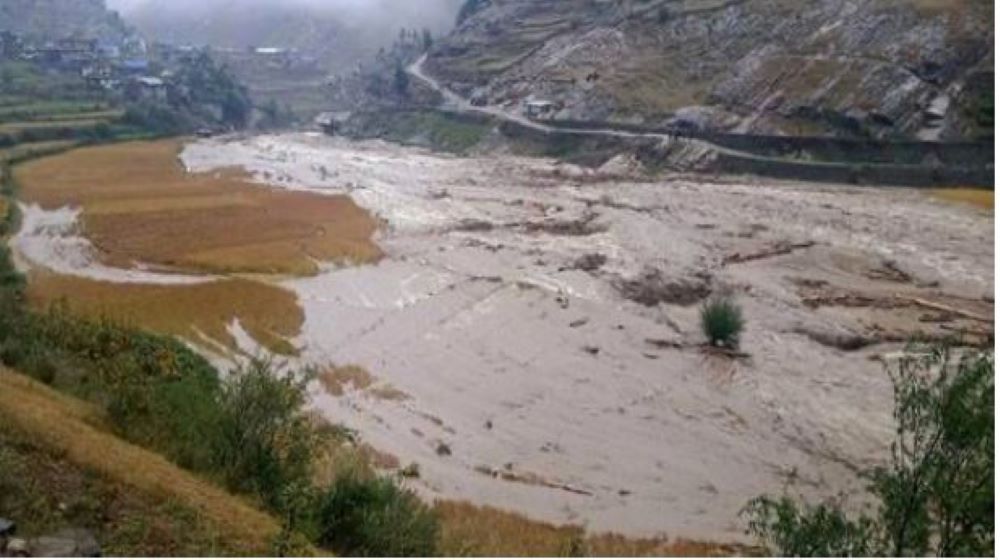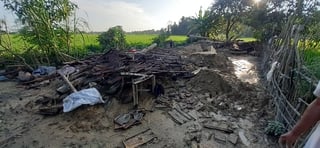In the courtyard of a dilapidated house, maize grains are set out in the sun for drying. A little further, two children play inside a blue tarpaulin that has been converted into a makeshift tent.
Bimala Gharti, their mother, sits outside the tent, tired from fetching water a little earlier.
“Look at these houses…or what’s left of it,” she says, pointing towards debris where once, a row of houses stood in the same courtyard. “...everything we used to own is gone.”
Bimala is one of 84,000 women of reproductive age affected by the 6.4 magnitude earthquake which struck on the 03 November 2023 affecting approximately 300,000 people in the districts of Jajarkot, Rukum West and other neighboring districts in the Karnali province in the West of Nepal.
The earthquake and the subsequent 350 aftershocks claimed 154 persons and destroyed over 62,000 houses, pushing families to live out in the open in makeshift tents.
“When families are forced to live outdoors in the winter, there are several concerns that we need to keep in mind, including their reproductive and mental health, and psychosocial support, and protection, safe access to toilet facilities and not to mention sanitation and menstrual hygiene needs,” says Hari Karki, National Humanitarian Response Officer, UNFPA Nepal.
UNFPA is on the ground supporting women and adolescent girls with essential hygiene supplies for dignified menstruation even during times of crisis through 7,500 prepositioned dignity kits and 4,500 kishori (adolescent) kits.
14 year old Sujata is one such young girl who is posted outside her house in a make-shift tent with her mother. She explains how impossible it is for them to retrieve any of their belongings as most items have been buried under the collapsed house.
Holding onto a kishori kit she just received she says,
“I started my period yesterday and I didn’t have any hygiene products and I didnt know what to do. I am so thankful for this”.
4,200 women are estimated to be currently pregnant, with 1428 women likely to give birth in the next three months and this means they will need access to functioning health centers. But extensive damages to 47 health facilities, as well as a shortage of critical supplies, have severely compromised the delivery of essential health services, including sexual and reproductive health.
“My labour started early because of the earthquake and my daughter was born a few weeks premature, but she is healthy. I’m under observation for a few days because I have lost a lot of blood, but we are so happy our daughter is doing well. My husband and I are dreading going back home. We’ve been here since the night of the earthquake, and after all those aftershocks, we fear that we have no home left to go back to,” says Parbati Gharti Magar, a new mother in Jajarkot.
UNFPA is committed to continue to support women like Parbati by equipping hospitals and health posts with reproductive health kits which contain lifesaving medical supplies required for safe deliveries and emergency obstetric care. Given the vulnerability of communities living out in the open, UNFPA is also working to strengthen the gender-based violence response services and referral mechanism so the protection needs of every single woman and girl are met even in a post-disaster context.
This year, as the world marks 16 Days of Activism against gender-based violence, it is a stark reminder that greater investments must be made to prevent violence against women and girls both in a humanitarian setting and beyond. With support from Australia and the Republic of Korea, UNFPA is responding to the immediate needs of women and girls. Looking ahead, UNFPA is also working with the Government of Nepal on a long-term strategy to build resilience to crises.




